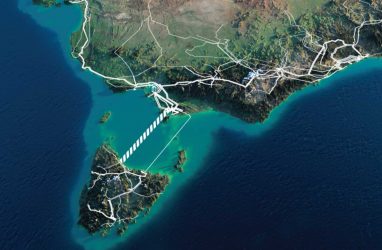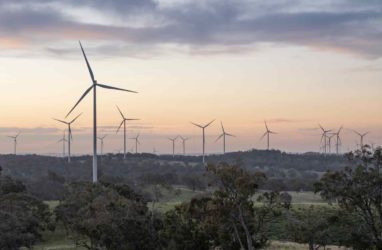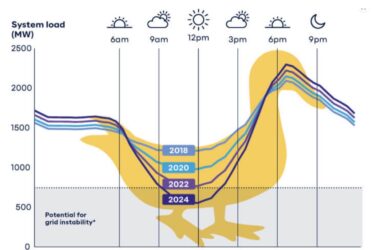Feed aggregator
CN Markets: CEA price reaches 5-mth high, volumes remain modest
Weather tracker: Shanghai reports record high May temperature of 36.7C
Heatwave continues in southern and eastern Asia as temperatures exceed 40C in vast swathes of region
Shanghai in China has reported a record high May temperature of 36.7C, breaking the previous record by 1C. The new high temperature on 29 May comes amid the heatwave affecting southern and eastern Asia since mid-April. Vast swathes of the region have had temperatures exceeding 40C, with parts of Pakistan reaching almost 50C in mid-May.
South-east Asia has been affected particularly badly, with record high national temperatures in Laos (43.5C), Vietnam (44.2C), and Thailand (45.4C). This is due to low amounts of rainfall over the previous winter resulting in drier soils, which can heat up more quickly than moist soils, thus exacerbating the effect.
Continue reading...FEATURE: Keep on moving – Dynamic baselines seen driving accuracy in forest carbon accounting
Japanese bank to provide J-credit generation and purchase services
The week in wildlife – in pictures
The best of this week’s wildlife photographs, including owl chicks, a white moose calf and hungry brown bear cubs
Continue reading...Australia Market Roundup: Clock ticking for new human-induced regeneration projects to register, regulator warns
Network of geothermal power stations ‘could help level up UK’
Many of Britain’s poorest towns are in areas with greatest potential for renewable energy, says report
A network of underground geothermal plants is being touted as a way to help level up the UK after a report discovered many areas with the greatest geothermal potential lie beneath the towns and cities most in need of investment.
Areas that have been earmarked by the government as part of its levelling up agenda are about three times as likely to be rich in untapped energy from the earth, according to an academic study commissioned by No 10.
Continue reading...Marinus Link gets nudge along as cost determinations begin
 Australian Energy Regulator starts cost and revenue determinations on 1500MW Marinus Link, paving way for early works on the controversial project.
Australian Energy Regulator starts cost and revenue determinations on 1500MW Marinus Link, paving way for early works on the controversial project.
The post Marinus Link gets nudge along as cost determinations begin appeared first on RenewEconomy.
Coal generator fined for lousy response to coal plant explosion that rocked the grid
 Coal plant owner hit by fines for having the wrong settings on its generating units as regulator investigates why Callide coal explosion had such a big impact on grid.
Coal plant owner hit by fines for having the wrong settings on its generating units as regulator investigates why Callide coal explosion had such a big impact on grid.
The post Coal generator fined for lousy response to coal plant explosion that rocked the grid appeared first on RenewEconomy.
US deal could plug Turkmenistan’s colossal methane emissions
The central Asian country has the worst rate of climate-heating ‘super-emitter’ events in the world
The US is in negotiations with Turkmenistan over an agreement to plug the central Asian nation’s colossal methane leaks.
Turkmenistan was responsible for 184 “super-emitter” events in which the powerful greenhouse gas was released in 2022, the highest number in the world. One caused climate pollution equivalent to the rate of emissions from 67m cars.
Continue reading...Think of solar panels more like apple trees – we need a fairer approach for what we use and sell
Australian energy company blasted for offering cash to customers to switch from electric to gas appliances
Asset manager calls on governments to provide regulatory foundations for nature positive investments
Fossil gas death spiral: Regulator caps exit fee to “socialise” cost of mass disconnection
 Regulator sets exit fee for households seeking to quit gas as they electrify, and allows networks to impose higher fixed charges to recoup investments in face of death spiral.
Regulator sets exit fee for households seeking to quit gas as they electrify, and allows networks to impose higher fixed charges to recoup investments in face of death spiral.
The post Fossil gas death spiral: Regulator caps exit fee to “socialise” cost of mass disconnection appeared first on RenewEconomy.
Native raspberries, limes and geraniums: how did these curious plants end up in Australia?
Australian airline Qantas launches A$400-mln climate fund, calls for expressions of interest
Coal in NSW could be squeezed out by end of decade. But the timelines are tight
 NSW roadmap says 14GW of new wind, solar and firming capacity could be delivered by end of the decade to replace coal. But will transmission be built in time?
NSW roadmap says 14GW of new wind, solar and firming capacity could be delivered by end of the decade to replace coal. But will transmission be built in time?
The post Coal in NSW could be squeezed out by end of decade. But the timelines are tight appeared first on RenewEconomy.
Australia’s first 2GWh battery is aimed at eliminating a very big solar duck curve
 The country's first 2GWh big battery is clearly focused on eliminating the growing solar duck curve in Western Australia.
The country's first 2GWh big battery is clearly focused on eliminating the growing solar duck curve in Western Australia.
The post Australia’s first 2GWh battery is aimed at eliminating a very big solar duck curve appeared first on RenewEconomy.



